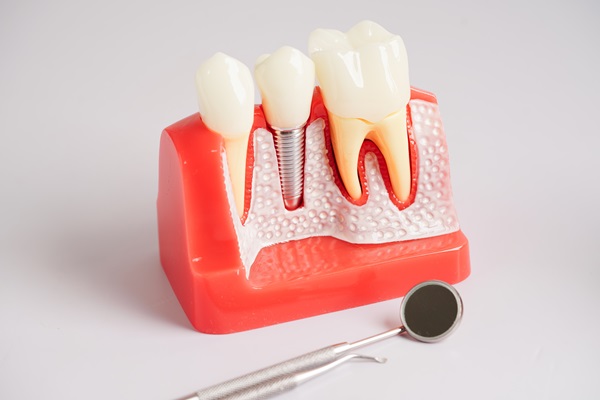Your Questions About Professional Dental Teeth Cleaning Answered

Teeth cleanings are an important part of maintaining good oral health because they ensure the removal of plaque and tartar, both of which can lead to serious damage to the gums and teeth. Thankfully, general dentistry services include routine teeth cleanings twice a year or more frequently, depending on preference and needs.
Questions and answers about teeth cleanings in general dentistry
When considering a regular teeth cleaning, it can be helpful to review the following information, which outlines answers to common questions on the subject.
1. How often should individuals undergo a teeth cleaning?
General dentists recommend that individuals of all ages undergo a teeth cleaning twice a year or every six months. However, there are certain scenarios in which teeth cleanings should be undergone more frequently. Individuals who are at a high risk of developing gum disease or cavities may be recommended to get teeth cleanings every three months or four times a year. Additionally, those with braces may be advised to get a teeth cleaning every other month, as their teeth and gums are harder to reach during oral hygiene.
2. Does a teeth cleaning hurt?
There should not be any pain during or after a teeth cleaning. However, some individuals experience slight sensitivity, which is completely normal. If sensitivity lasts more than 24 hours, it is best to use a special mouthwash or toothpaste.
3. Is there anything special to do after a teeth cleaning?
There is not any special to do after a teeth cleaning appointment. It is recommended to avoid eating or drinking for 30 minutes, but outside of that, individuals are free to do as they please. If any sensitivity is experienced, then it may be best to avoid hot or cold foods and beverages for a day or so until the sensation subsides.
4. What happens during a teeth cleaning appointment?
During a teeth cleaning, individuals can expect to have their teeth flossed, brushed and polished. The hygienist will use professional dental instruments and strong products to thoroughly clean the teeth. Some teeth cleaning appointments will also include X-rays, an examination and fluoride application, all of which encourage good oral health.
5. Will cavities form without a teeth cleaning?
While at-home oral hygiene can keep the teeth in good shape, it does take the expertise of a general dentist in order to properly remove all plaque and tartar. If routine teeth cleanings are not maintained, then the teeth become extra prone to plaque buildup, which can lead to the development of cavities. Plaque and tartar tend to live along the gumlines, and when they are not removed on a regular basis, the gums can become infected.
Get started with a teeth cleaning
Regardless of age, it is necessary to undergo a teeth cleaning at least twice a year or every six months. To get started with an appointment or to learn more, reach out today!
Request an appointment here: https://regopark.aaadentalny.com or call Rego Park Dental at (718) 275-3311 for an appointment in our Rego Park office.
Check out what others are saying about our services on Yelp: Read our Yelp reviews.
Recent Posts
Dental implants can improve your oral health and appearance. There are many benefits to choosing this tooth-replacement method. Of course, implants are not the only way you can restore your smile and the function of your mouth. However, as you learn more about them, you will see why so many people choose this treatment. Living…
A root canal is a dental technique devised to treat infection or damage within the pulp (the innermost chamber) of the tooth. While the procedure has a reputation for being painful, thanks to anesthetics, it is often no more uncomfortable than getting a filling.While there is no recovery period after getting a root canal, proper…
Laser dentistry may be the ideal choice for people looking for a new approach to dental care. The dentist uses lasers for a number of dental treatments. It provides a precise and sophisticated method of treating patients' oral health problems comfortably and effectively.Dentists use lasers to alter or remove hard or soft tissues in the…
The term dental restoration refers to a number of procedures used to repair or restore function and aesthetics to teeth that are in bad shape, whether it be due to cavities, imperfections, or abnormalities. Modern-day dentistry has allowed for the evolution of many different types of dental restorations, including dental fillings, which are typically the…



